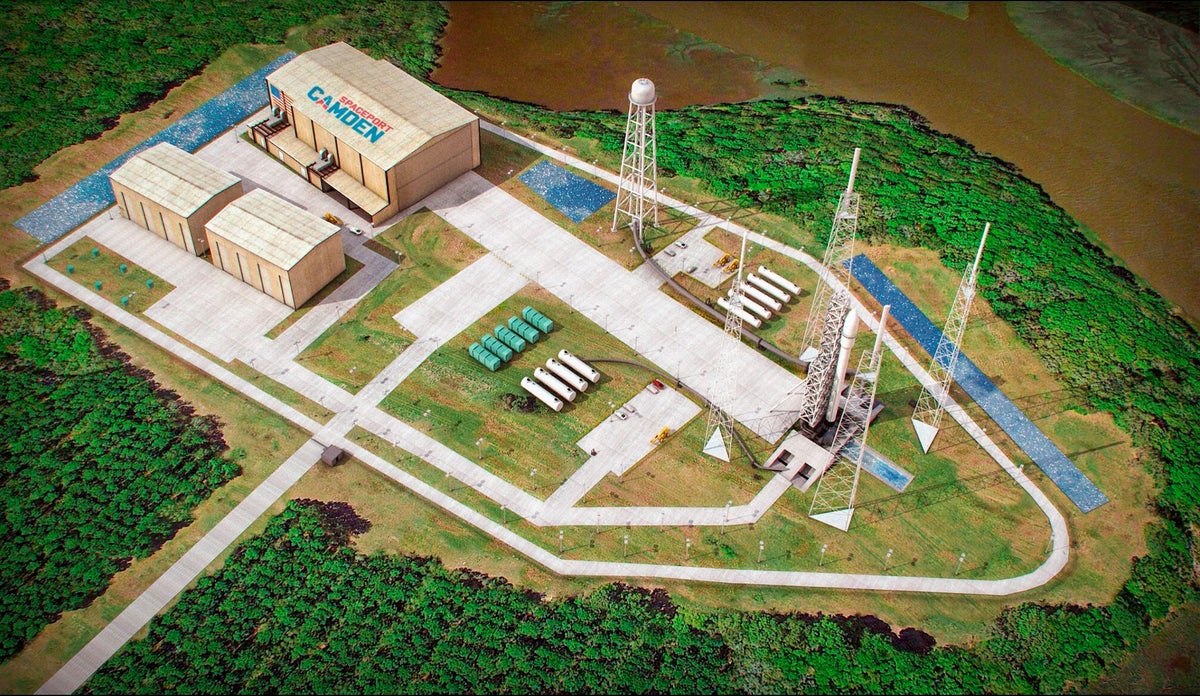
Georgia's highest court Tuesday upheld an election in which coastal residents voted overwhelmingly last year to block their county government from building a launchpad for blasting commercial rockets into space.
The Georgia Supreme Court unanimously rejected a legal challenge by Camden County commissioners who sought to have the referendum last March declared invalid. The officials argued Georgia's state constitution doesn’t allow citizens to veto decisions of county governments.
The court strongly disagreed, ruling that the state constitution’s language “plainly grants repeal and amendment powers to the electorate” over county ordinances and resolutions. The opinion by Justice Carla Wong McMillian said the county’s reading of the same provisions “would violate well established tenets of constitutional interpretation.”
The court's ruling could be the final blow for Camden County's pet economic development project. Elected commissioners for the county of 55,000 residents at the Georgia-Florida line has spent the past decade and $11 million seeking to build Spaceport Camden. They say the project would bring economic growth not just from rocket launches, but also by attracting related industries and tourists.
Opponents say the project poses potential environmental and safety hazards that outweigh any economic benefits. The county planned to build the spaceport on an industrial plot formerly used to manufacture pesticides and munitions.
The proposed flight path would send rockets over Little Cumberland Island, which has about 40 private homes, and neighboring Cumberland Island, a federally protected wilderness visited by about 60,000 tourists each year. Residents and the National Park Service have said they fear explosive misfires raining fiery debris could spark wildfires near homes and people.
In March, opponents forced a referendum on the project after gathering more than 3,500 petition signatures from registered voters saying they wanted the spaceport on the ballot.
The result was a big defeat for the spaceport. The final tally showed 72% of voters sided with halting the project by overruling commissioners’ prior decision to buy land for the spaceport.
Despite the project's defeat at the polls, county officials had tried to keep the project moving forward while their legal challenge was pending before the state Supreme Court.
The owner of the 4,000-acre (1,600 hectare) site on which the county planned to build the launchpad announced in July — four months after the referendum — it was no longer offering the property to Camden. County commissioners then filed suit, seeking to force the landowner to sell.
The legal issues before the Georgia Supreme Court had nothing to do with job growth or safety. Instead, they involved how much power the state’s constitution gives people to overrule decisions made by their county governments.
The Georgia constitution lays out a means for citizens to call special elections to make “amendments to or repeals of (county) ordinances, resolutions, or regulations.” To force a referendum, citizens must collect petition signatures from at least 10% of a county’s registered voters.
Attorneys for Camden County unsuccessfully argued the state constitution restricts the scope of those elections, only allowing voters to alter powers and responsibilities delegated to county governments by state law.
The Association County Commissioners of Georgia, which represents elected officials across the state’s 159 counties, joined Camden County in challenging the referendum. Both Camden County and the association said allowing voters to directly overturn decisions of county officials could lead to instances of a single issue being repeatedly approved by a county and then repealed by voters.
The Supreme Court dismissed that argument in its ruling, saying: “There is little evidence that such a parade of horribles would occur, given that a county’s governing authority, which is comprised of elected officials, would be unlikely to routinely disregard the will of the electorate.”
Both sides in the legal battle over the spaceport acknowledged that the citizen referendum power is rarely used in Georgia.
Lawyers for spaceport critics who gathered signatures calling for the referendum noted it took roughly two years until enough people had signed their petition to force a vote on the project.







